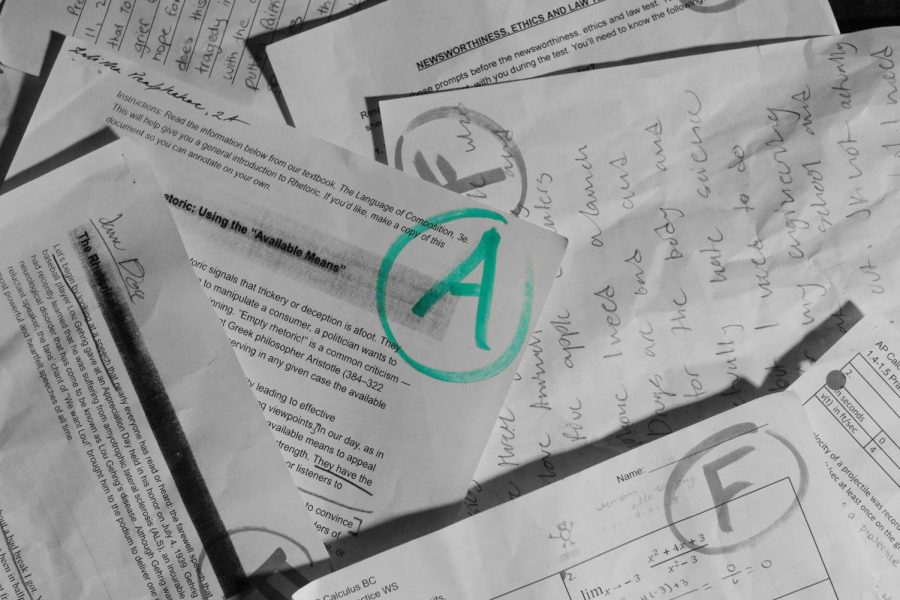Hide – And – Cheat
Cheating, and why we do it.
November 3, 2022

Glancing over at a peer’s paper. Scouring the internet for test answers. Scribbling formulas on your arm. Cheating occurs in numerous ways but many students believe it comes down to a student’s work ethic.
Cheating is diverse, and so is its definition to students. Students cheat to improve their grade, but this decision goes beyond the gradebook; students and teachers alike are impacted.
To counter this, the student addendum language has been updated to differentiate between cheating and plagiarism. However, the new switch to just one grading category and higher reassessment eligibility standards has also redefined students’ take on cheating in response to these added pressures.
“If everything’s weighted the same, I feel like I have to get the best possible grade on every assignment, so I feel like more people are gonna cheat now,” an anonymous interviewee said. “I might cheat more too.”
“I’ve cheated much more because of this no major [or] minor grades policy cause my chances of getting easy grades have lowered,” another anonymous interviewee said. “So why work hard when you can work smarter, you know?”
Policies have changed, but students believe it might just increase cheating. The lengths students have taken to improve their grades in the past reveals that cheating is taken more seriously, yet will continue to be prevalent amongst high-schoolers.
“Back in 2020, I cheated on my AP test with my textbook sitting right next to me,” an anonymous interviewee said. “Just be smart about it”.
“My friends and I made a big discord channel for each class we had together with links to answers and notes, and it was the only reason I passed,” another interviewee said.
Some students believe that cheating will likely boost their grade compared to utilizing what they already know on the assessment. Others however believe this action to be distressing and unhelpful in the long run.
NHS secretary, Chloe Lee, believes that cheating reflects poorly on a person’s work ethic.
“I know a lot of people who put a lot more effort into cheating at the moment than they will ever do for preparation for any tests or any assignments,” Lee said. “If you’re not willing to fail, you’re not willing to improve either.”
Students may have different opinions on cheating, but teachers take a strong stand for academic integrity. Teachers recognize that students feel pressured, and want to help them find the root of the problem.
“There’s a lot of factors that go into cheating,” ELAR department head Mrs. Skelton said. “Even just the need for striving for perfection, it almost feels so unattainable, that you just give up, give in and just cheat because you cannot act.”
Teachers understand the stressors students face, yet they also believe that cheating is harmful and it is up to both teachers and students to counteract this action.
Mrs. Skelton believes that cheating ultimately comes down to not learning anything and only hurting yourself in the end.
“We want you to have integrity,” Skelton said. “It’s our job as educators and as a school to make sure students are actually learning something.”
Students feel strongly about cheating regardless of what they learn.
“You kind of feel like you have to cheat now that assignments really make or break your grade”.



